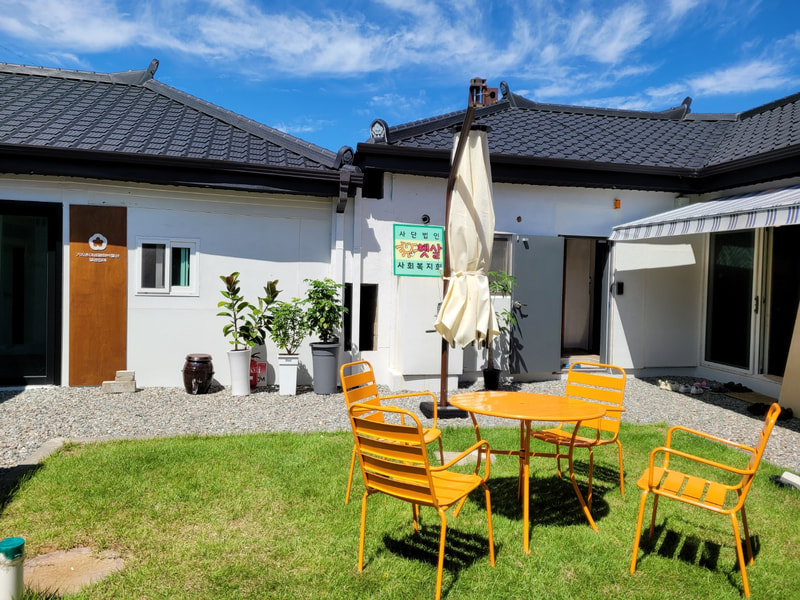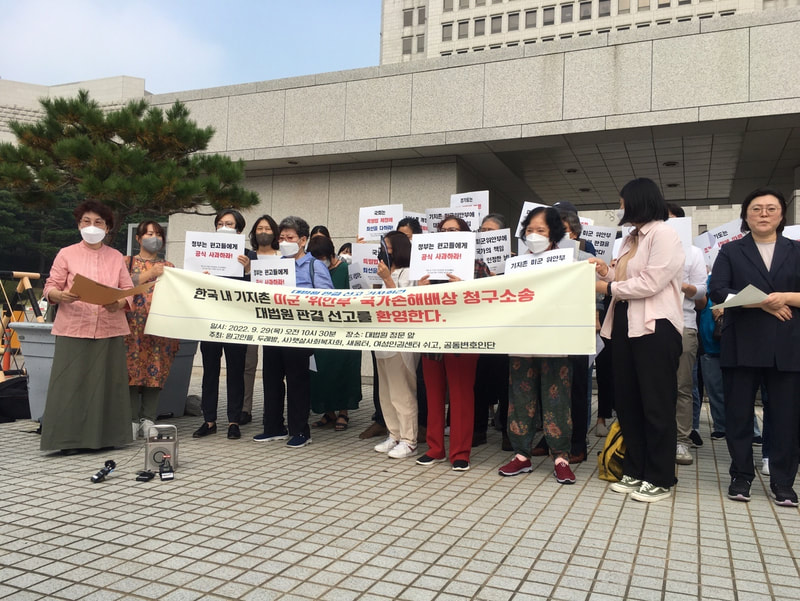|
Photo credit: Soon Duk Woo On Sept. 29, 2022, South Korea’s highest court ordered the state to pay compensation to women who were forced or coerced into the military sex trade in so-called “camptowns” or Gijichon (기지촌) that developed around U.S. military bases. Recognizing the state’s responsibility for encouraging and justifying the military sex trade, the court ordered the state to pay between 3 million and 7 million won (approximately $2,100–$4,900) in compensation each to a total of 95 former Gijichon women.
The former Gijichon women sued the government for coordinating the sex trade for the U.S. military. They were kept locked into the camptown sex trade, resulting in irrevocable physical and psychological suffering. The government forced these women to register as U.S. military “comfort women” and submit routine STD testing results, even going so far as to mobilize public health workers and the police to forcibly quarantine those who refused to be tested. As their official documents indicate, from the 1950s to 1980s, both the South Korean and U.S. governments referred to these Gijichon women as “comfort women.” The euphemistic term “comfort women” was first used to refer to Japanese military sex slaves taken from many parts of Asia before and during WWII. However, unlike Japanese military sex slaves euphemistically referred to as “comfort women,” U.S. military “comfort women” did not garner much attention in South Korea. In the case of Japanese military “comfort women,” the survivors filed lawsuits beginning in 1992, a year after Hak-soon Kim publicly testified about her experience as a Japanese military sex slave. Although the perpetrators of both Japanese military “comfort women” and U.S. military “comfort women” were governments and men, Gijichon women didn’t sue for compensation until 2014. Both the U.S. and South Korea contributed to the existence of the U.S. military “comfort women” system. In its ruling, the South Korean Supreme Court stated, “The government’s formation and operation of the military base villages, and encouraging and justifying prostitution inside them, constitute a violation of the duty to honor human rights.” The court added that, “These actions correspond to a violation of human rights under the Framework Act on Settling Past Issues for Truth and Reconciliation (2005). Therefore, a request for the state to pay damages for those actions is not subject to the statute of limitations.” The court ordered the South Korean government to pay 7 million won to the women who were kept in “monkey houses” while paying the rest 3 million won. Though there were initially 122 women who filed suit in 2014, the number dwindled to 95 after 24 died of old age and two withdrew from the lawsuit. 72-year-old Suk-ja Kim, a natural-born Korean, said she finally feels that she is a legitimate South Korean citizen.
0 Comments
Leave a Reply. |
CategoriesCategories |
Proudly powered by Weebly



 RSS Feed
RSS Feed